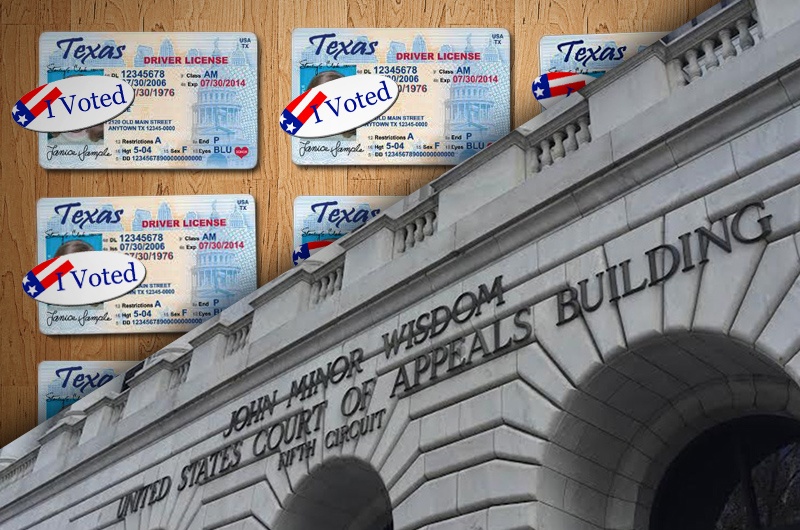-
Tips for becoming a good boxer - November 6, 2020
-
7 expert tips for making your hens night a memorable one - November 6, 2020
-
5 reasons to host your Christmas party on a cruise boat - November 6, 2020
-
What to do when you’re charged with a crime - November 6, 2020
-
Should you get one or multiple dogs? Here’s all you need to know - November 3, 2020
-
A Guide: How to Build Your Very Own Magic Mirror - February 14, 2019
-
Our Top Inspirational Baseball Stars - November 24, 2018
-
Five Tech Tools That Will Help You Turn Your Blog into a Business - November 24, 2018
-
How to Indulge on Vacation without Expanding Your Waist - November 9, 2018
-
5 Strategies for Businesses to Appeal to Today’s Increasingly Mobile-Crazed Customers - November 9, 2018
Great News For Voting Rights In Wisconsin And Texas
A federal appeals court ruled Wednesday, July 20, 2016, that Texas’ strict voter ID law discriminates against minorities and the poor and must quickly be scrubbed of those effects before the November 2016 election.
Advertisement
ThinkProgress describes it as “a stunning, unexpected decision from one of the most conservative federal appeals courts in the country”, the New Orleans-based 5th U.S. Circuit Court of Appeals.
The following year in October, a district court in Texas held that the law was in fact “enacted with a racially discriminatory goal, has a racially discriminatory effect, is a poll tax, and unconstitutionally burdens the right to vote”. The seven acceptable forms of photo ID included the following: a Texas Driver’s license, free Texas election identification certificate (EIC), Texas personal ID card, Texas license to carry a concealed handgun, USA military ID card, US citizenship certificate, and USA passport.
Texas elections officials may not be able to enforce a voter ID requirement this fall, as a panel federal judges has agreed with a lower court and found the requirement to be discriminatory against racial minorities. For those who can obtain or already have the kind of IDs that the law requires, they must produce them in order to vote, the main opinion stressed.
On both sides of this law, Texas Republicans and Democrats will see some changes.
Although the court found some of the arguments made in previous court cases to be legitimate, “there remains evidence to support a finding that the cloak of ballot integrity could be hiding a more invidious goal”, Haynes wrote.
The state has spent more than $3 million trying to defend its voter identification law. With Thursday’s ruling, the 5th Circuit Court has now dictated that a lower court needs to revise this portion of the law and create a solution that opens the elector process to those who were previously barred from doing so. “The court sent a message that discriminatory photo ID laws are an affront to our democracy”. A total of more than 600,000 Texans lacked proper ID, or almost 5 percent of all registered voters, a lower court found.
“This decision affirms our position that Texas’s highly restrictive voter ID law abridges the right to vote on account of race or color and orders appropriate relief before yet another election passes”, she said.
“We are evaluating all of our options right now”, a spokeswoman for Texas attorney general Ken Paxton told The New York Times.
If Texas had been allowed to do what its been trying to do, that would be a green light for other states to try something similar, Professor Hasen said.
“Today is a great day for the secure voting rights of all Americans but it is a watershed day in the protection of voters in Texas who have recently been under attack by state leaders”, said Chad Dunn, a lawyer for some of the plaintiffs. Abbott also appealed the ruling to the 5th Circuit panel.
But while liberals may have just had politically valuable Hispanic illegal aliens in mind when they launched their seemingly successful effort to undermine Texas voter ID law, the implications are far more wide-reaching.
The ruling Wednesday afternoon by the 5th Circuit Court of Appeals marks the latest turn in a half-decade-long court fight over the law. But the court said it could revisit the issue as the November elections approach. The judges were divided differently on other parts of the ruling.
Attorneys for the law’s challengers said the Voting Rights Act requires courts to look closely at the context and consequences of the changes and whether they are needlessly burdensome.
Advertisement
“The full court’s ruling delivered the strongest blow yet to what is widely viewed as the nation’s strictest voter ID law”, the paper wrote.





























